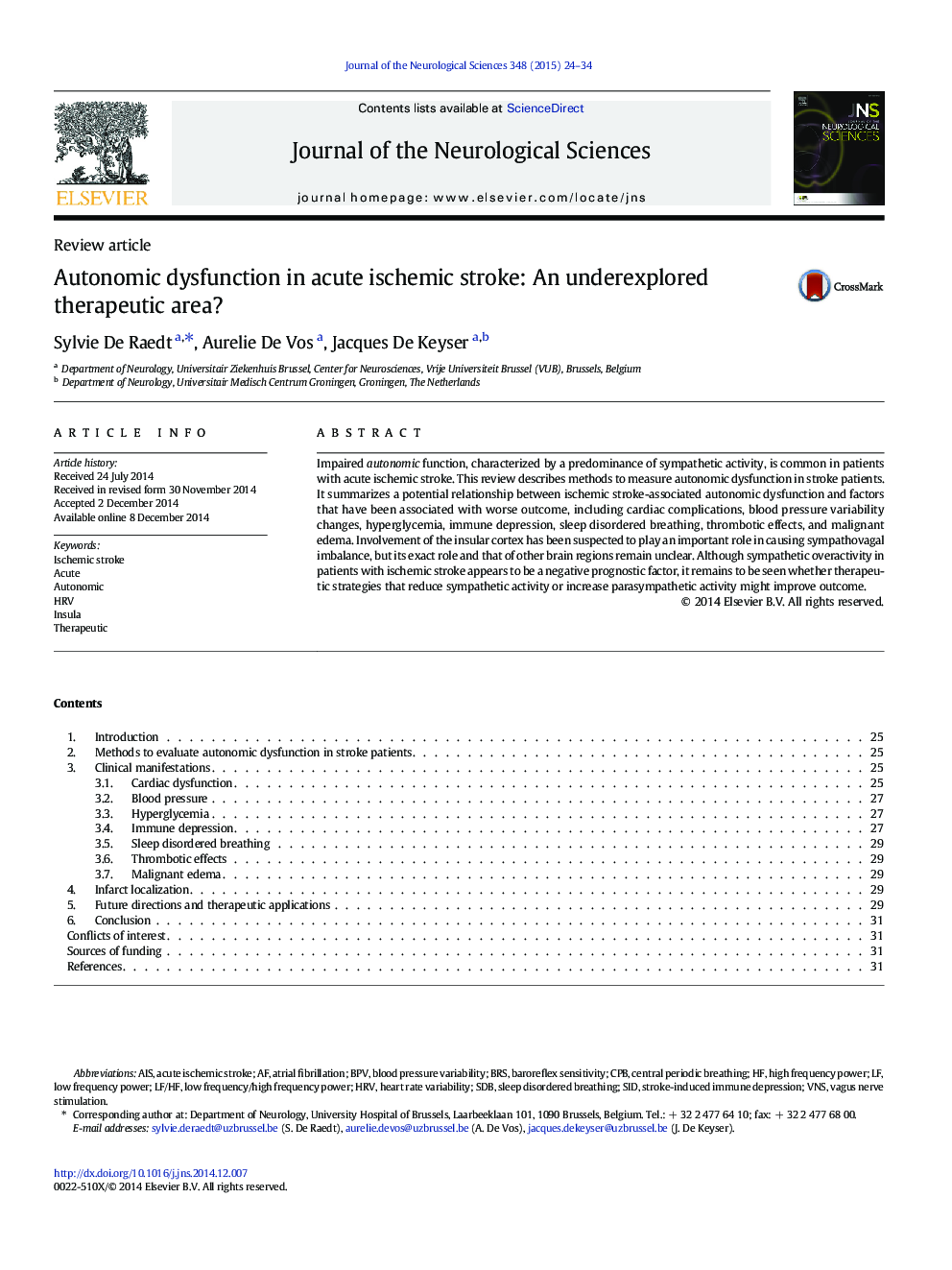| Article ID | Journal | Published Year | Pages | File Type |
|---|---|---|---|---|
| 1913400 | Journal of the Neurological Sciences | 2015 | 11 Pages |
•We review clinical manifestations of autonomic dysfunction in acute ischemic stroke.•It is a challenge to assess and interpret autonomic dysfunction.•The insula might play a role in the development of a sympathovagal imbalance.•Autonomic dysfunction might be a therapeutic target.
Impaired autonomic function, characterized by a predominance of sympathetic activity, is common in patients with acute ischemic stroke. This review describes methods to measure autonomic dysfunction in stroke patients. It summarizes a potential relationship between ischemic stroke-associated autonomic dysfunction and factors that have been associated with worse outcome, including cardiac complications, blood pressure variability changes, hyperglycemia, immune depression, sleep disordered breathing, thrombotic effects, and malignant edema. Involvement of the insular cortex has been suspected to play an important role in causing sympathovagal imbalance, but its exact role and that of other brain regions remain unclear. Although sympathetic overactivity in patients with ischemic stroke appears to be a negative prognostic factor, it remains to be seen whether therapeutic strategies that reduce sympathetic activity or increase parasympathetic activity might improve outcome.
